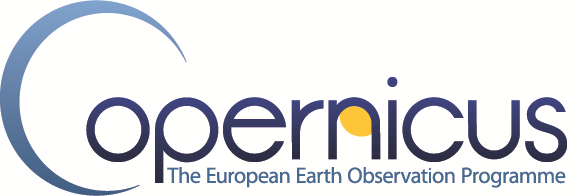|
|
German contribution to the Group on Earth Observations and the establishment of the Global Earth Observation System of SystemsGEOSS in brief :: About GEO :: About D-GEO :: European contributions - Copernicus and INSPIRE :: German Contributions :: Documents :: News |
European Contributions - Copernicus and INSPIRE |
Documents and Links |
In the context of joint activities such as Copernicus, Horizon 2020 and INSPIRE, Europe
delivers important and coordinated contributions to GEOSS and positions
itself together with the national contributions of the member states
as strong partner in GEOSS. The European Commission is one of the
four GEO co-chairs together with the USA, China and South Africa.
It coordinates and represents the European community interests in the
GEO. Three European Countries hold additional rotating seats in the Executive Committee.
They are nominated by the European GEO Members for two years.
Presently, these are German, France and Finland. |
 |
„Copernicus“ (formerly know as Global Monitoring for Environment and Security, GMES is a joint initiative of the European Union and ESA developing and operating an operational European earth observation capacity. It delivers efficient information services supporting public and private services for environment and security. Copernicus is the second "flagship" of European space-based applications, alongside GALILEO. It is among Europe's main contributions to GEOSS. Besides six satellite families, the Sentinels, Services for land applications, marine environment, rapid mapping support for emergency anc crisis management, air quality and atmospheric conditions, climate change and civil security monitoring are operated. |
|
| „Infrastructure for Spatial Information in Europe“ (INSPIRE) is the EU directive to harmonize Geo Data in Europe. With INSPIRE the conditions of interoperable data management and improved data are created. This is at the same time an important contribution for the harmonization of Geo Data Infrastructures globally. | |
| In setting up the Integrated Carbon Observing System (ICOS), Europe has created an infrastructure for monitoring regional carbon balances over the long term. ICOS consists of observation networks for measuring the atmospheric CO2 concentration and fluxes in representative ecosystems and the Baltic Sea, the North Sea, and the northern Atlantic. Through GEOSS this system can be complemented with satellite measurements and can be integrated into a global carbon observation system. ICOS is considered the European component of the "Integrated Global Carbon Observation System" (IGCO). |


